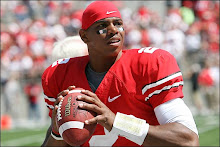
The New York Times recently wrote an article about the legendary Alan Greenspan, aka the Oracle of the economics world. The article, titled “Taking Hard New Look at the Greenspan Legacy,” discusses Greenspan’s contribution to the economic collapse of our country. Greenspan has been the Federal Reserve chairman since 1987; that’s four different presidents and both political parties.
For two decades, he was the most influential man in the economy, and his job at the Federal Reserve made him the voice of Wall Street in the White House. In his twenty years in Washington D.C., Greenspan always fought for an independent financial marketplace that had little government regulation. He guaranteed the market could always balance itself out without intervention, and government oversight would be a waste of time and money.
But Greenspan had one flaw: he thought so much of his own opinion and reasoning about the economy, he didn’t listen to warnings other economists were giving him. In 2000, the economy began to steadily decline, and many people believed the market needed government-enforced rules to end companies’ impulsive, high-risk deals. But government officials who believed in the oversight of the economy were either overruled by Greenspan or were too afraid to argue with him. No one could take away Greenspan’s influence and power in Washington D.C., and he continued to maneuver the government away from regulating the economy. Greenspan could not be removed from his place in the Federal Reserve until 2006, but by that time it was too late for our economy. The quirks in the market Greenspan said would solve themselves plunged our nation into the worst economic collapse since the Great Depression.
Greenspan’s theory of a totally independent market contributed to the recession we’re having today. Eighty years ago, another famous political figure took our country down the scary path of economic collapse with his ideals of government withdrawal and free enterprise. His name was Herbert Hoover, and he was the President when the Great Depression hit in 1929. The way Hoover saw it, the crisis would solve itself, and government loans would not bring a solution. As Hoover said, “Prosperity cannot be restored by raids upon the public treasury.” Hoover’s lack of support for funding and government regulation left the American people with no strong leader to turn to in the dark times.
Although Hoover and Greenspan both contributed to economic collapses in our country, Greenspan’s position was almost more dangerous to our country than Hoover’s. This is because Hoover was voted out of his position as President after four years of serving. The people were tired of his passive, ineffective policies and elected a more vigorous President. But Greenspan’s position is not controlled by the voters, but rather by the President himself. Greenspan’s influence on our country couldn’t be monitored because people had no say. So for the first time in over 20 years, our country is beginning to understand the truth about Alan Greenspan and his economic theories. This is one time the structure of our democracy seems flawed.


1 comment:
just to play the devil's advocate, could've hoover and greespan both just been sticking to the founding fathers' valued economy: an economy that is free of government intervention?
Post a Comment